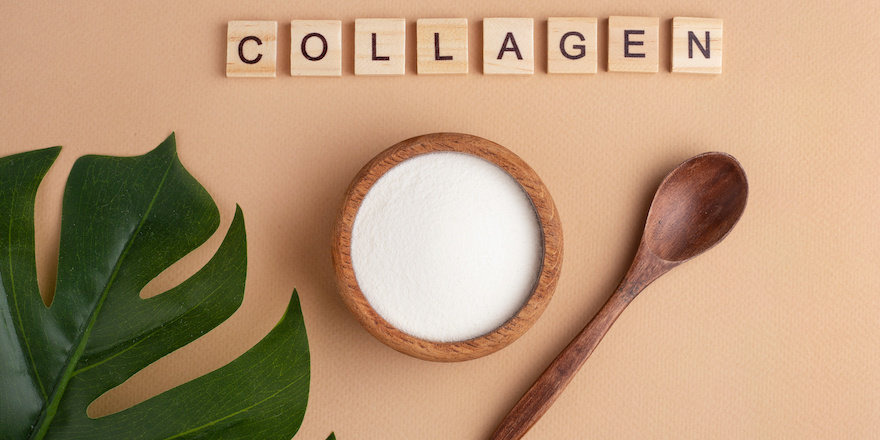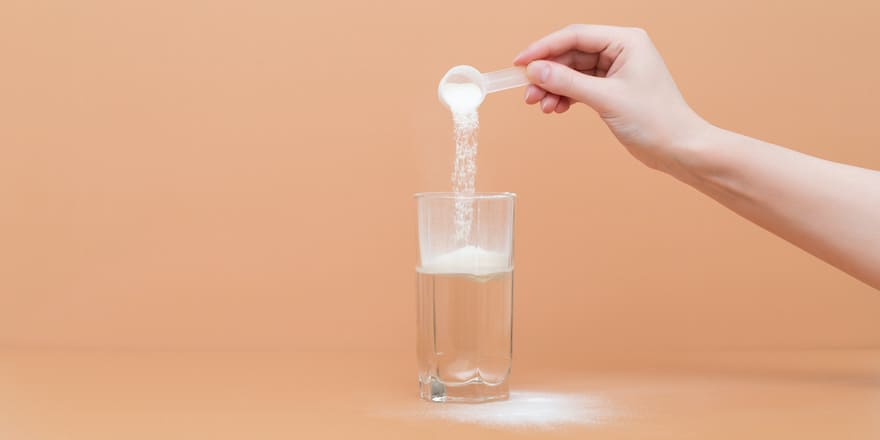Before being the dietary supplement we are interested in here, collagen is a protein found in our bones, muscles, tendons, joints, skin, blood vessels… Most of our tissues contain it, as summarized in this study.
It provides strength and structure to those same tissues, a bit like the foundations of a well-built house. It strengthens bones, helps joints glide over one another, makes the skin smooth, etc.
As its production by the body decreases with age, in recent years we’ve seen the rise of many collagen supplement brands, notably in powder form. And this powder is still always animal-derived: either from fish or from cows.
So, marine or bovine collagen? I’ll explain here their differences so you can choose between the two.
Read also | The best marine collagens according to a pharmacist
1. Origin and the ethical question
Marine collagen is obtained from fish scales and skins. These are therefore by-products of the fishing industry, whether wild-caught or farmed.
Bovine collagen, on the other hand, is obtained from the skins, tendons, and bones of cows.
Regardless of its origin, an ethical question arises: is fishing sustainable? Are the living conditions in farming acceptable? Are cattle raised in industrial settings or outdoors?
These environmental concerns can affect the choice of supplement. To ease your conscience, I recommend choosing a patented collagen, such as Peptan® or Naticol® collagen, which provides assurances about the animals’ conditions.
Furthermore, a patented collagen normally ensures a lower level of contaminants.
2. Molecular composition

In general, it’s said that the marine and bovine collagens both contain type I and III collagen. The first is mainly found in the skin, while the second is the preferred collagen of muscles and blood vessels.
Their composition is therefore similar, even though marine collagen contains a higher proportion of type I collagen.
In molecular terms, there are certain amino acid differences from one collagen to another.
According to my research, bovine collagen appears to be richer in hydroxyproline, although the exact composition of collagen varies depending on its location in the body.
3. Bioavailability
Aside from beliefs and allergies, if there is one criterion to keep in mind, it’s bioavailability.
It’s the body’s ability to absorb and effectively use ingested collagen. In other words, it is the amount of collagen that is actually available to the body after digestion.
It varies depending on the molecular composition, the molecular weight (the size) of the product, and the mode of administration.
The majority of studies show greater bioavailability of marine collagen.
4. Taste

Marine and bovine collagens do not taste like fish or beef steak. But the psychological factor should not be underestimated: one can perceive a difference in taste.
Whether in capsule form or as a powder, the dietary supplement normally loses all of its characteristic odor.
5. Price
Looking at the prices charged by different brands, I have to conclude: marine collagen is generally more expensive.
The reasons? Marine collagen extraction processes are considered to be more complex, and bioavailability is reputedly better.
6. Benefits
The difference in composition between these two collagens can influence their use, even though the benefits are relatively similar.
Studies have notably shown positive effects of marine collagen for improving the appearance of the skin, which is rich in type I collagen. This is less the case for bovine collagen.



